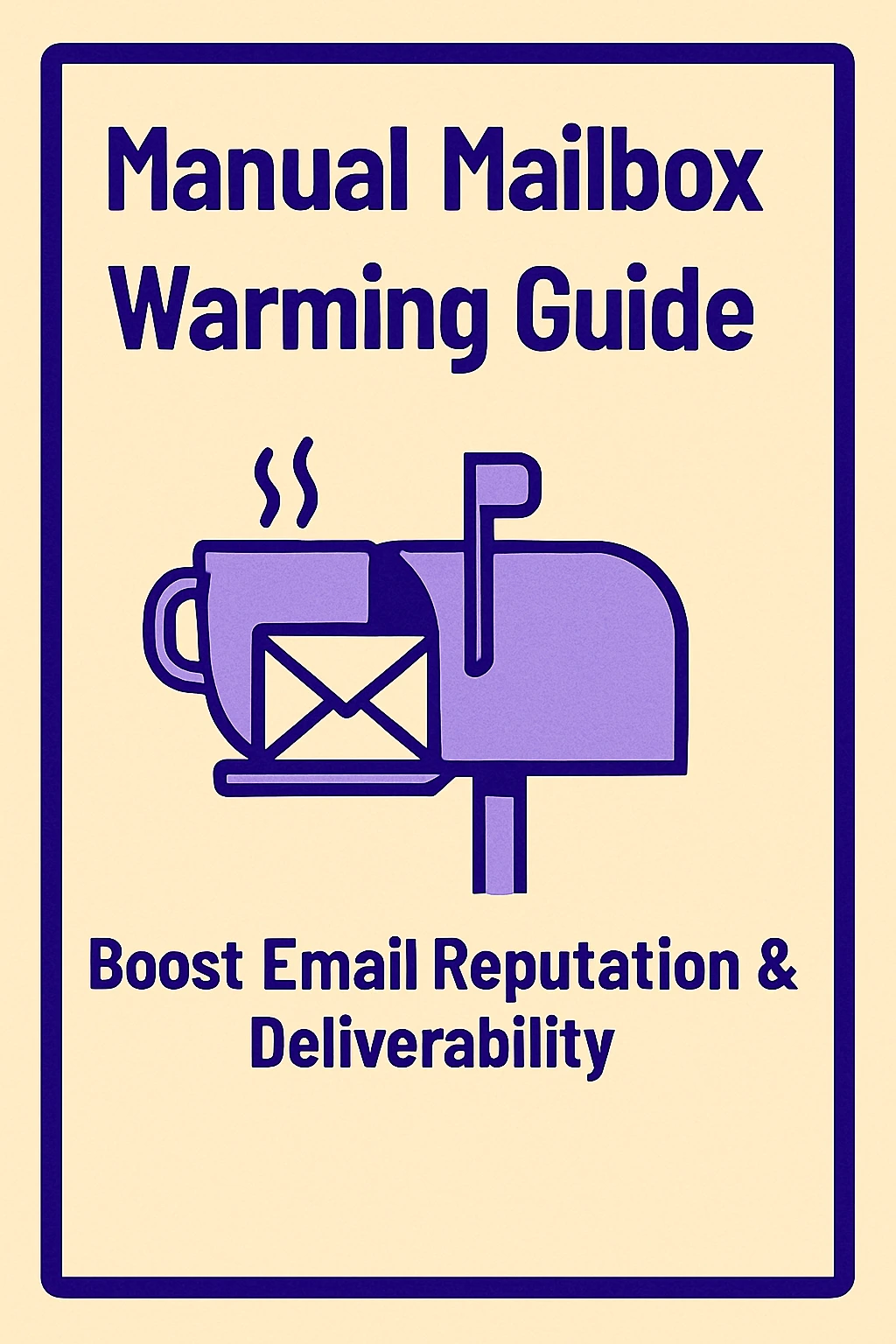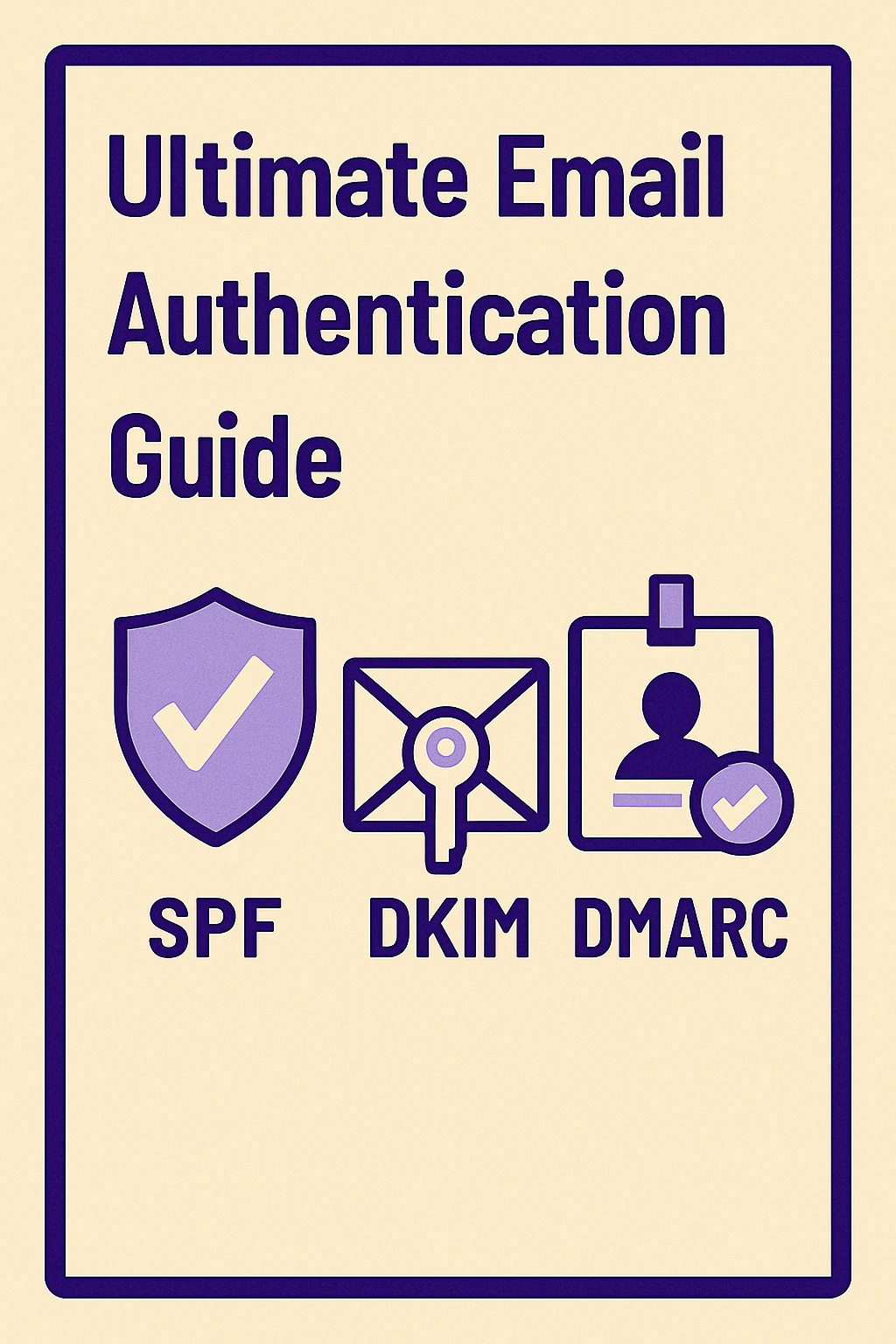How Email Infrastructure Platforms Keep Email Data Private
In today’s digital landscape, email remains the cornerstone of business communication—but it also poses one of the biggest privacy risks. From misdirected messages to unsecured attachments, even routine emails can accidentally expose sensitive information. With regulatory pressures like GDPR, HIPAA, and India’s DPDP Act tightening their grip, organizations can no longer afford to treat email privacy as an afterthought. This blog explores how modern email infrastructure platforms help businesses proactively protect private data. We break down key features like end-to-end encryption, domain authentication, region-based data routing, and real-time access monitoring. You’ll also discover how tools like MailKarma.ai, Mission Inbox, InfraForge, and Mailreef simplify compliance, reduce human error, and build trust with both customers and regulators. Whether you're a small business or a large enterprise, this guide will show you how to make privacy part of your everyday email process—not just a reactive fix. If you're serious about protecting your data, this article will help you lay the groundwork.

If you’ve ever sent an email with sensitive information, you probably hoped it wouldn’t land in the wrong hands. Unfortunately, in many companies, email privacy is still treated as an afterthought—until something goes wrong.
The truth is, email is no longer just a communication tool. It’s a container for confidential files, customer records, employee data, and proprietary information. One wrong move, one misdirected message, one insecure server—and private data is out.
In 2025, protecting email privacy isn’t optional. It’s a responsibility that falls squarely on business leaders, IT teams, and even marketers. The good news? There are now infrastructure platforms specifically designed to help you manage that responsibility—and protect your business from preventable mistakes.
Why Email Privacy Demands Your Attention
Human Error Is Still the Biggest Threat
Let’s be honest: most privacy incidents don’t happen because of sophisticated hackers. They happen because someone typed the wrong email address. Or attached the wrong file. Or forwarded a thread they shouldn’t have. These mistakes are common, but the damage can be major. With the right infrastructure, you can stop many of these errors before they do any harm.
Regulators Are Watching Closely
Laws like GDPR, HIPAA, and India’s DPDP Act have raised the bar. Today’s privacy standards don’t just encourage better data handling—they require it. If your email system can’t track consent, encrypt data, or restrict access, you could be violating regulations without even knowing it.
Your Clients Expect It
It’s not just about avoiding fines. Your clients and customers want to know you’re protecting their information. One privacy misstep can shake their trust. On the flip side, showing that you’ve built privacy into your systems can set you apart in a competitive market.
What Privacy-First Email Infrastructure Offers

Email infrastructure platforms aren’t just about speed and deliverability anymore—they now serve as your front line of privacy defense. Here’s how they help:
1. Built-In Encryption
Good platforms automatically encrypt your messages both in transit and at rest. That means no one can read your emails—not the mail server, not the cloud host, not even someone intercepting it mid-route.
2. Domain Authentication
Protocols like SPF, DKIM, and DMARC confirm that emails sent from your domain are actually coming from you. That stops scammers from impersonating your brand and sending phishing emails in your name.
3. Role-Based Access Controls
Not every employee needs access to every inbox. The right infrastructure lets you set rules for who can see, send, or manage different types of email, keeping sensitive info on a need-to-know basis.
4. Region-Specific Data Routing
Some countries require that email data stay within national borders. Platforms with smart geo-routing features allow you to comply without complicated workarounds or extra server setups.
5. Metadata Cleanup
Even if you secure your message, emails often carry hidden data, like location, IP address, and device info. Tools like Mailreef remove unnecessary metadata to minimize exposure.
6. Sensitive Content Detection
Pre-send scanning features can automatically detect sensitive details—like account numbers or personal IDs—and stop them from being sent if security isn’t in place.
7. Real-Time Monitoring and Alerts
Unusual logins, mass downloads, or unfamiliar IPs? Advanced platforms track all of this in real time, giving you the power to respond quickly and contain potential breaches.
8. Automated Consent and Preference Management
You shouldn’t have to manually track who opted in or unsubscribed. Privacy-focused platforms store and respect consent records, helping you stay compliant without the chaos.
The Tools That Are Changing the Game
Here are a few platforms helping businesses stay on top of email privacy in 2025:
MailKarma.ai
MailKarma gives you a privacy and deliverability score, highlighting vulnerabilities in your current system and showing you how to fix them. It’s like a health check for your email infrastructure.
Check your system score at MailKarma.ai
Mission Inbox
Designed for teams that want simplicity without sacrificing security. Mission Inbox offers encrypted delivery, message filtering, and sender verification—all without a steep learning curve.
InfraForge
For businesses in law, finance, or healthcare, InfraForge uses a zero-trust model—verifying every request, every time. If privacy mistakes could cost you big, this platform is worth a close look.
Mailreef
Mailreef focuses on insight and control. It cleans metadata, logs system activity, and gives you a full view of what’s happening inside your email flow—ideal for compliance-driven companies.
Think Privacy Tools Are Just for Big Companies? Think Again.
Small teams often think privacy tools are overkill. In reality, they’re the ones most at risk. A single leak or misconfigured domain can wipe out customer trust overnight.
Fortunately, most infrastructure platforms now offer pricing tiers and features scaled for smaller organizations. You don’t need a massive IT department to use these tools—you just need to care about doing things right.
Better Privacy Can Also Improve Deliverability
Here’s a benefit you might not expect: stronger privacy practices often lead to better inbox placement.
- Authenticated domains build trust with mail providers.
- Metadata cleanup reduces spam triggers.
- Consent tracking means fewer unsubscribes and complaints.
- And clean infrastructure helps preserve your sender reputation.
It’s a win-win: better protection and better performance.
Habits That Keep Your Email System Safe
Technology helps, but privacy is also about the choices your team makes. Adopt these habits to stay protected:
- Review email access regularly and remove old accounts.
- Disable third-party tools you no longer use.
- Educate employees about spoofing and phishing threats.
- Rotate passwords and tokens every few months.
- Run system audits once a month.
These small steps add up—and they make a big difference.
Privacy Tools That Support Compliance

Full Audit Trails
Whether you’re being audited or just reviewing internal policies, having a complete log of access, delivery, and consent activity is a lifesaver.
Consent Management
No more digging through spreadsheets to prove who agreed to what. Modern platforms handle opt-in history automatically, with time stamps.
Easy Reporting
Need to generate a compliance report? Good infrastructure gives you exportable summaries in seconds, not hours.
Where Email Privacy Is Headed Next
The landscape is evolving fast. Here’s what to watch for:
- AI-driven alerts that adapt to your organization’s behavior
- Verified brand logos in inboxes (BIMI)
- Encryption that adjusts to the sensitivity of each message
- Scoring tools like MailKarma.ai are becoming industry benchmarks.
- More privacy laws that treat email as regulated data
Getting ahead of these changes now is much easier than scrambling to catch up later.
Final Word: Privacy Can’t Wait
Privacy isn’t something you tack on at the end. It’s something you bake into your systems, your tools, and your culture. And when it comes to email, the risks are too high—and the solutions too accessible—to ignore.
Suppose you’re not sure where your email infrastructure stands. Start with a free scan at MailKarma.ai. It’s the easiest way to find your weak spots and take control of your privacy.
FAQs
Is email privacy the same as email security?
Not quite. Security focuses on keeping outsiders out. Privacy ensures sensitive data is handled properly, even by insiders.
Is S/MIME better than PGP?
Depends on your setup. S/MIME is more common in corporate systems; PGP is more flexible for individual or tech-savvy users.
Are privacy tools too technical for non-IT teams?
Not anymore. Platforms today are designed for usability. You don’t need to be a developer to use them well.
How often should I check my email setup?
Once a month is a good habit. Roles change, systems update, and regular checks keep you ahead of issues.
Recent Blogs
FAQs: Everything You’re Wondering About Cold Email Deliverability & MailKarma’s Infrastructure
MailKarma is a dedicated email infrastructure solution built exclusively for cold email outreach. Unlike shared inbox tools or general ESPs, MailKarma gives you complete control over your sending setup—private US IPs, clean domains, and expert-backed deliverability practices. Built by cold email pros, MailKarma is optimized to scale outreach without landing in spam.
Because MailKarma sets up private infrastructure—including custom domains and mailboxes—it doesn’t offer a traditional free trial. However, you can explore the platform, view your dashboard, and test features before provisioning infrastructure. Our private dedicated email servers cost $150 per server plus $0.001 per email sent, making it extremely cost-effective for high-volume cold email campaigns. For Gmail Workspace solutions, pricing starts at $3.50 per email with a 10-email minimum, dropping to $2.50 per email for volumes over 100 emails. This transparent pricing model ensures you only pay for what you use while maintaining enterprise-grade email deliverability.
Yes. MailKarma automatically sets up SPF, DKIM, and DMARC records using best-in-class standards. No technical hassle—our system handles everything behind the scenes, and our support team is always ready to assist if needed.
Every MailKarma subscription includes:
- Automated DNS setup (SPF, DKIM, DMARC)
- Private mailbox hosting
- Ongoing deliverability optimization
- Server monitoring and uptime guarantees
It depends on your monthly sending volume and the number of contacts per sequence. To simplify this, MailKarma includes a volume-based calculator inside the app to help you choose the optimal setup for scale, safety, and inbox placement.
Gmail and Outlook aren't built for cold outreach—they throttle volume, rotate IPs, and limit deliverability. MailKarma gives you:
- Dedicated infrastructure
- Warmed IPs and aged domains
- No shared resources
- Built-in best practices for cold outreach
It's the infrastructure your outreach actually needs.

.png)



